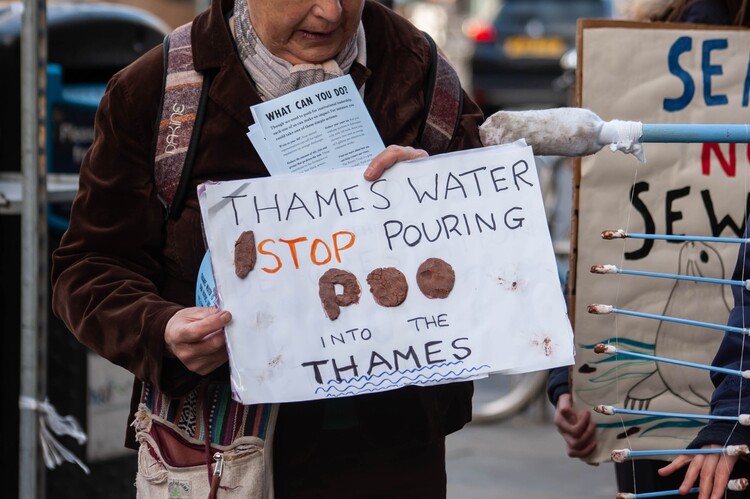
Fears for competitors in Oxford-Cambridge boat race due to raw sewage leading to dangerous levels of E.Coli in the River Thames
By
One of the great sporting events of the British springtime is the annual boat race along the River Thames between teams from Oxford and Cambridge Universities. The event was first held in 1829 and annually since 1856. During this time, the only break in the tradition was during the world wars (though unofficial races were held) and during the Covid-19 pandemic. The event today attracts a quarter of a million live spectators and up to 15 million TV viewers.
At the end of each race, tradition holds that the winning team leap into the river. But, a few days before this year’s event, which took place over the Easter weekend, River Action, an environmental pressure group whose goal is to ‘rescue Britain’s rivers from a cocktail of agricultural, sewage and industrial pollution, released a statement recommending that the winning team refrain from jumping into the waters of the Thames due to alarming levels of E. Coli bacteria detected in the river. Instead, River Action have suggested that the boat crews wash themselves down at a dedicated cleansing station after the race.
The E.coli bacterium is found in faeces and can cause a range of infections including urinary tract infection, cystitis (infection of the bladder), and intestinal infection, stomach cramps, bloody diarrhoea, and vomiting. In the worst cases, some strains of E.coli can lead to life-threatening sepsis (blood poisoning).
By using a World Health Organization verified E.Coli analyser, the tests conducted by River Action revealed levels of E.coli in parts of the Thames to be up to 10 times higher than levels that the Environment Agency grades as poor quality bathing water. When bathing water levels are rated poor government, advice is to avoid going in the water. River Action said that the testing locations suggest that the source of this pollution is from sewage being discharged directly into the river and its tributaries by Thames Water.
According to publicly available data, by 26 March Thames Water had discharged sewage into the Greater London area of the River Thames for 1,914 hours since the start of 2024. That’s the equivalent to 79 days out of 86 days since the start of the year. The data comes from 40 storm overflow sites between Kingston in the southwest of London and the mouth of the River Thames to the east.
Overall, Environment Agency statistics for 2022 showed that sewage was spilled 300,953 times in waterways and coastal waters across England for a total of 1.7 million hours. That’s the equivalent to 824 spills a day. Shockingly, the figures of raw sewage discharge for 2023 are expected to be considerably higher still with an increase of over 120 per cent over 2022.
To solve the problem of sewage discharges and other water related issues, the UK water industry wants to invest £96bn to the end of the decade. The regulator Ofwat has to decide whether to allow companies to increase water bills to pay for the investment. Some of these price increases could be massive, with Thames Water wishing to raise water bills by 40 per cent.
Meanwhile, on Saturday 30th March, back on the banks of the Thames, Cambridge easily won both the men’s and women’s divisions of the boat race again. However, in comments made afterwards, Oxford men’s cox, William Denegri, revealed that several members of his team had been ill in the days leading up to the race with – none other than – E.Coli. Race organisers have asked for clarification.
Related articles:



